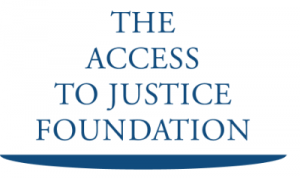Pro Bono Costs Orders Awareness Project Reports
The Cambridge Pro Bono Project, a programme within the Law Faculty of the University of Cambridge, was invited by the Access to Justice Foundation to conduct research into the pro bono costs scheme currently operating in the civil courts in England and Wales. The aim of the research was to obtain information on the level of awareness of the pro bono costs scheme, as well as on any barriers to the award of pro bono costs and deterrents to the pursuit of pro bono litigation.
The report examines the findings of research conducted on the Pro Bono Costs Scheme in England and Wales. While the number of responses was relatively low, the report provides insights into the awareness, understanding, and practical challenges surrounding the scheme.
The research found that there is a good general awareness of the Pro Bono Costs Scheme among legal practitioners, with around 86% of respondents being familiar with it. However, the level of familiarity varied, with some having only limited knowledge. Notably, there were indications of potential misunderstandings regarding the scheme’s operation.
Judicial awareness and understanding of the scheme were mixed. Some respondents reported positive experiences with judges, while others encountered a lack of awareness or unfamiliarity. Specific cases were cited where judges were unaware of the scheme or had limited understanding, highlighting the need for increased judicial training.
Pro bono costs were often the first concession made in settlement negotiations to maximise the client’s financial recovery. Practical issues like record-keeping and treating pro bono cases as philanthropic exercises rather than opportunities for cost recovery also hindered applications.
The report explored the potential extension of the Pro Bono Costs Scheme to other jurisdictions, with generally positive responses. Employment Tribunals, Immigration Tribunals, and the Court of Protection were among the suggested areas for expansion. However, some respondents cautioned against extending the scheme to jurisdictions where legal aid is available or making costs-free jurisdictions subject to costs orders.
The report concluded with recommendations, including providing training for the judiciary and practitioners, increasing awareness among commercial law firms, considering amendments to court rules to facilitate pro bono cost contributions, improving access to adverse costs insurance for pro bono cases, and considering a separate costs rule for the procedure to obtain pro bono costs.
Overall, the report highlighted the need for continued efforts to enhance awareness, understanding, and practical support for the Pro Bono Costs Scheme, while also exploring opportunities for its expansion to promote access to justice.
You can read more about the report including full findings and recommendations here.
